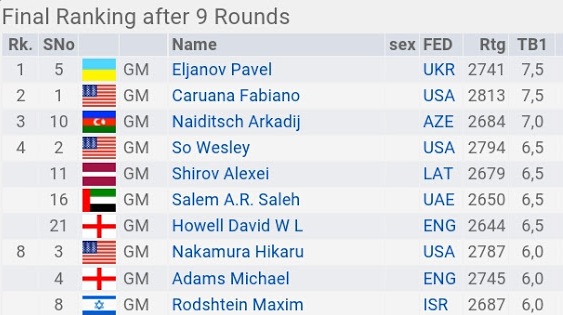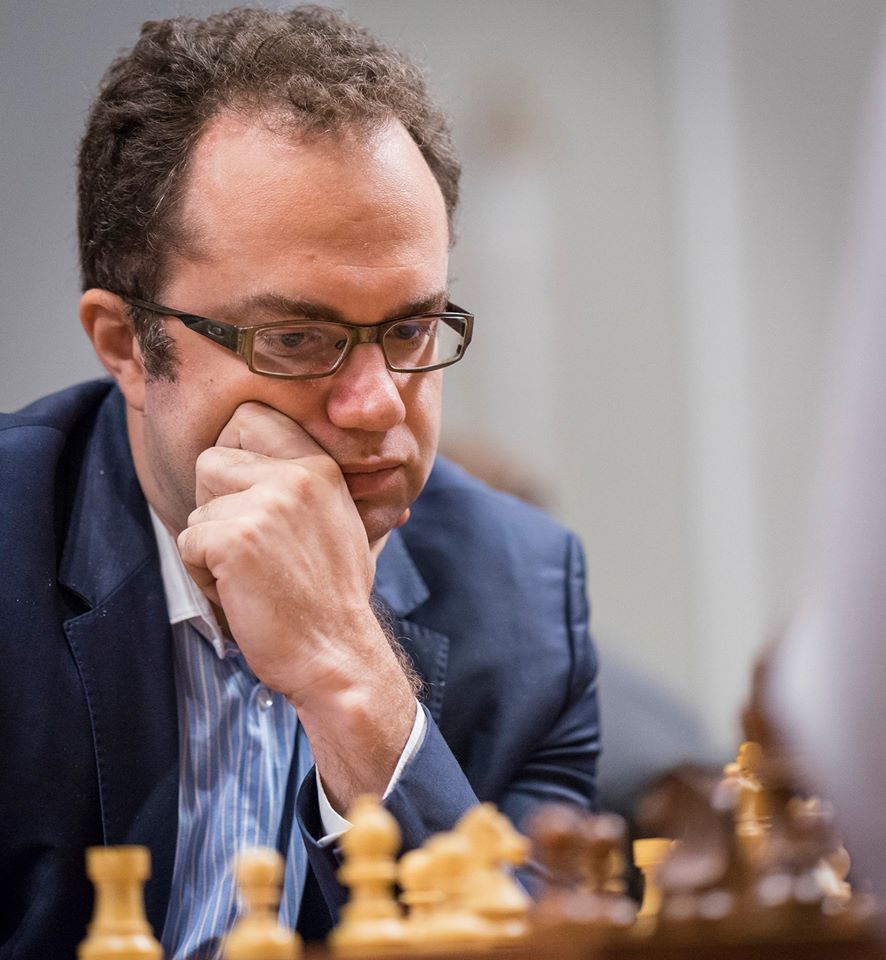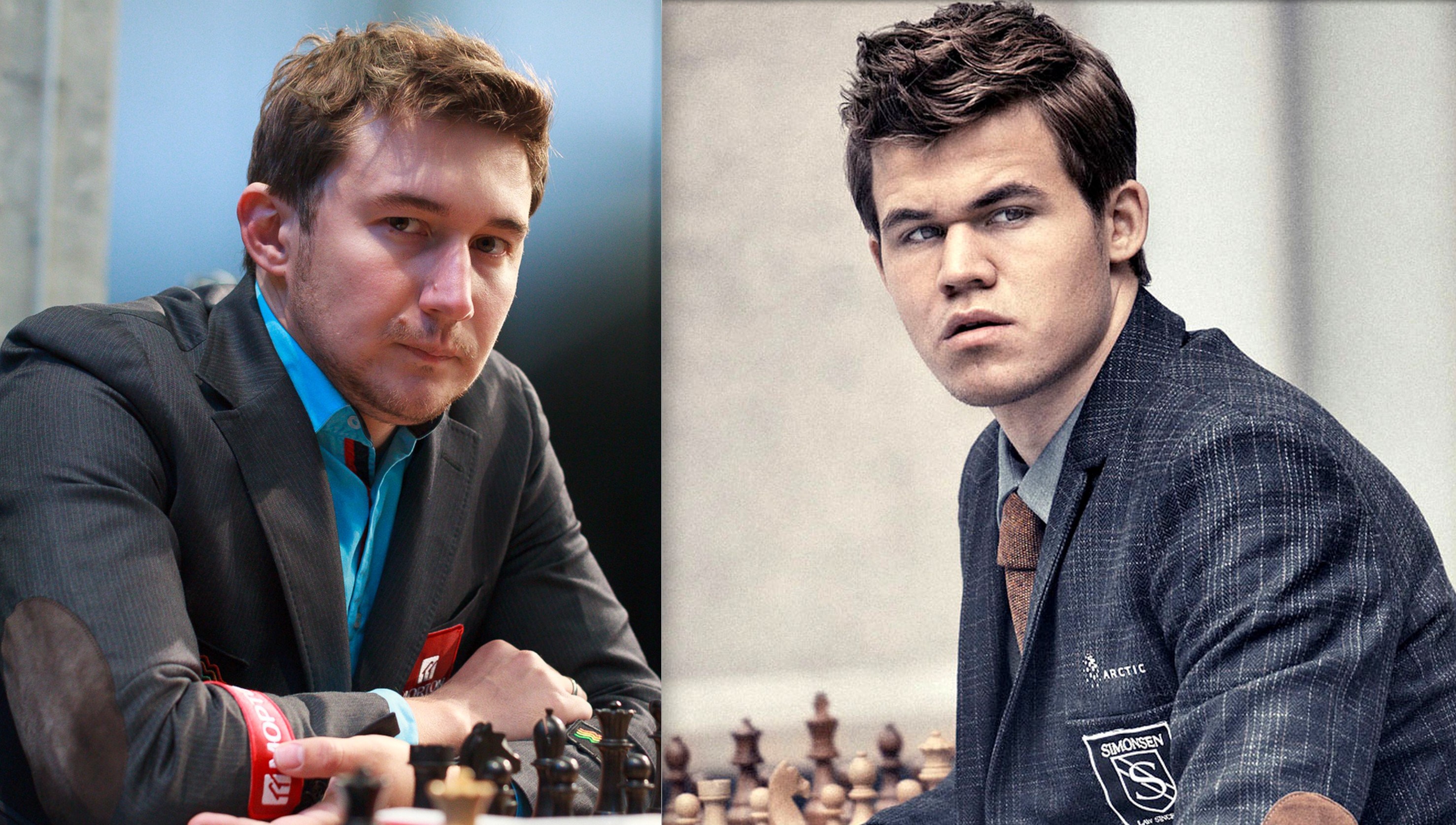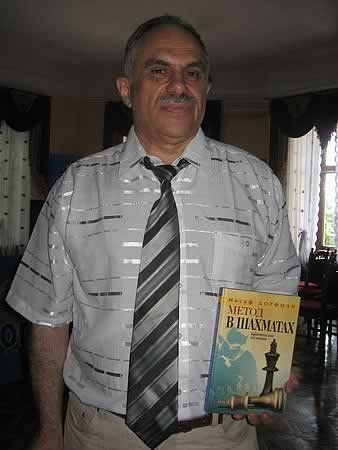Keeping up with the rising trend of strong open events, the Isle of Man International witnessed the participation of as many as 48 Grandmasters, including such distinguished players as Caruana, Nakamura, Wesley So, Adams and Eljanov, amongst others. Apart from a slight setback in the 2nd round, GM Pavel Eljanov, current World #16 and a key member of the Ukrainian team over the years, remained in full control throughout the course of the event and deservedly clinched the title. We were fortunate enough to catch up with him after this success, with Eljanov bringing his immense experience to the fore and speaking on a wide variety of topics in this highly informative interview.

Shubham Kumthekar: Hi Pavel, good to have you! Congratulations on your splendid victory at Isle of Man. What was your approach like going into the tournament?
Pavel Eljanov: I had no particular expectations. Just two weeks prior to the tournament, I had returned from the Olympiad, which is the most energy-consuming tournament around in my opinion. I did not have time to make any serious preparations – just got to recharge my batteries a bit.

At what point during the tournament did you feel that you might go on to win the event? How do you manage to keep such feelings from interfering with your play?
At the beginning of the tournament, my energy levels were not quite 100%. However, I warmed up round by round and played some good games. I also think getting closer to a tournament victory works in my favour: it boosts my motivation and concentration.

Which was the most satisfying game of the tournament?
I liked my game against Shirov the most. I am glad that I was successful in outplaying such a great player, thanks to some sleeky manoeuvres. In particular, 13.Nb1! was a nice move, not only aesthetic but also the strongest. I was very precise in the technical stage as well.

There has been a rising trend of strong Opens in the recent years. How do you compare these events to the traditional all-play-alls?
I like this trend, whereby professionals and club players – all take part in one big festival. These festivals usually consist of a main event along with some additional tournaments, wherein anyone wanting to play can participate. For me, it’s much more interesting to follow or play in such events.
Speaking of the tournament formats, what is your opinion about the existing World Championship structure?
The World Championship matches are gradually losing their dynamism and attractiveness, with chess (opening) theory going as deep as the endgame in many cases. As we can conclude from the previous two cycles, the most attractive parts have been the knock-outs and the Candidate tournaments. In these tournaments, players are forced to play more combative and resourceful chess, due to the necessity of beating more than one opponent. I think deciding a World Champion in tournaments featuring eight of the top players (like in San Luis or Mexico) is an interesting and logical solution.
New York 2016. Carlsen or Karjakin? How do you see the match panning out?
Concerning Carlsen-Karjakin, I would like to bring a wrong prognosis of course, but I don’t think it will be an attractive match from the point of view of chess content. Carlsen is clearly the better player and a big favourite on account of his good form and appropriate preparation. What I am really looking forward to is the organisers’ intention to provide virtual reality broadcast. I have already decided to buy a VR gear – I hope I won’t be spending money for nothing 🙂
[bctt tweet=”Pavel: What I am really looking forward to is the WCh organisers’ intention to provide virtual reality broadcast.” username=”FollowChessApp”]

Let’s go back in time. How did it all begin for you? What is your earliest memory associated with chess?
I grew up in a chess family. My dad was an International Master and a well known chess books publisher in the Russian language (Dvoretsky’s books, amongst others, were published by him). My mum also used to play chess, but at a more modest level (about 1800 ELO). I made my first steps in chess thanks to her. At that time, we used to learn from some chess books meant for kids. Then, we started travelling together to my early junior championships.

Growing up, which authors and players influenced you the most?
In the mid-90s, when my father began publishing, I used to help him with the proofreading of Dvoretsky’s chess books. That way, I absorbed a lot of quality chess information. I still think that those books are top class and beyond comparison.

Roundabout the time you became a Grandmaster, computers had started taking over. What has been your approach to using computers? How can up and coming players use computers to improve their play?
This is probably the most important question for young players aiming to play chess at the professional level. It is an extremely deep topic and I can speak on it for hours together. In brief, I suggest that any young chess player should not overuse the chess engines and stay away from concentrating too much on the study of openings. The most important thing for a chess player is to develop his/her own algorithm of finding (good) moves. To have a good mentor and to read good chess books is, in my opinion, essential for every player.
[bctt tweet=”Pavel: I suggest that any young chess player should not overuse the chess engines” username=”FollowChessApp”]
You are well-known in the chess fraternity for your opening expertise, having helped Gelfand more times than one, as well as Carlsen and Mariya Muzychuk. How do you go about preparing your openings?
It’s not a secret that more or less all top players work on openings constantly. Everyone tries to anticipate and be one step ahead of his/her competitors. I am no exception to this. I try and choose openings that suit my style.
Considering the opening boom and the rapidly developing engines, what are your views about Chess 960?
I have played Chess 960 only once – in Mainz a long time ago. I think it’s funny. Also, there are a lot of positions which simply lack harmony and are bad for black right from the first move. I think there is a lot of space to tweak the chess rules (without changing the initial position) in order to increase the effectiveness and attractiveness of our game. The simplest one (but hardly the most effective) is to cancel stalemate. In any case, classical chess still excites me very much. I believe there are many years to go before our game gets emasculated. However, an inner motivation of any chess player and appropriate formats for events are very important, as I noted earlier.
What, according to you, has been the defining moment(s) of your career?
There were a few. But I would say that the turning point – from where I started to work on chess much more professionally – was the Calvia Olympiad in 2004, when I became an Olympiad champion for the first time. I got a strong boost and realised that being 21 years old, I was still in the very beginning of my path.

If there is one thing that you would like to tell aspiring chess players around the globe, what would it be? 🙂
To enjoy the process and to not despair after failures. In any activity, there are ups and downs.
[bctt tweet=”Pavel Eljanov’s message to aspiring players: enjoy the process and do not despair after failures” username=”FollowChessApp”]
Blitzkrieg
If not a chess player, then…
A doctor.
How does a normal day of GM Pavel Eljanov look like?
Chess, family time, some sports etc.
Movies or the Theatre
TV series – my bad, I know 🙂
Early Bird or Night Owl
Night Owl.
The most influential (non-chess) book you have read till date.
Hard to choose one. From this year’s reading, I very much liked ‘The man who mistook his wife for a hat’ by Oliver Sacks.
Great interview!